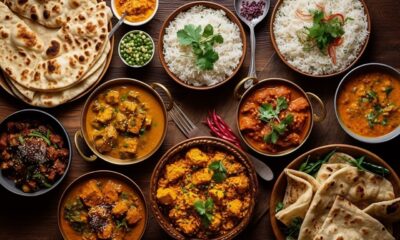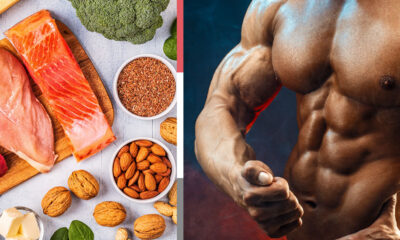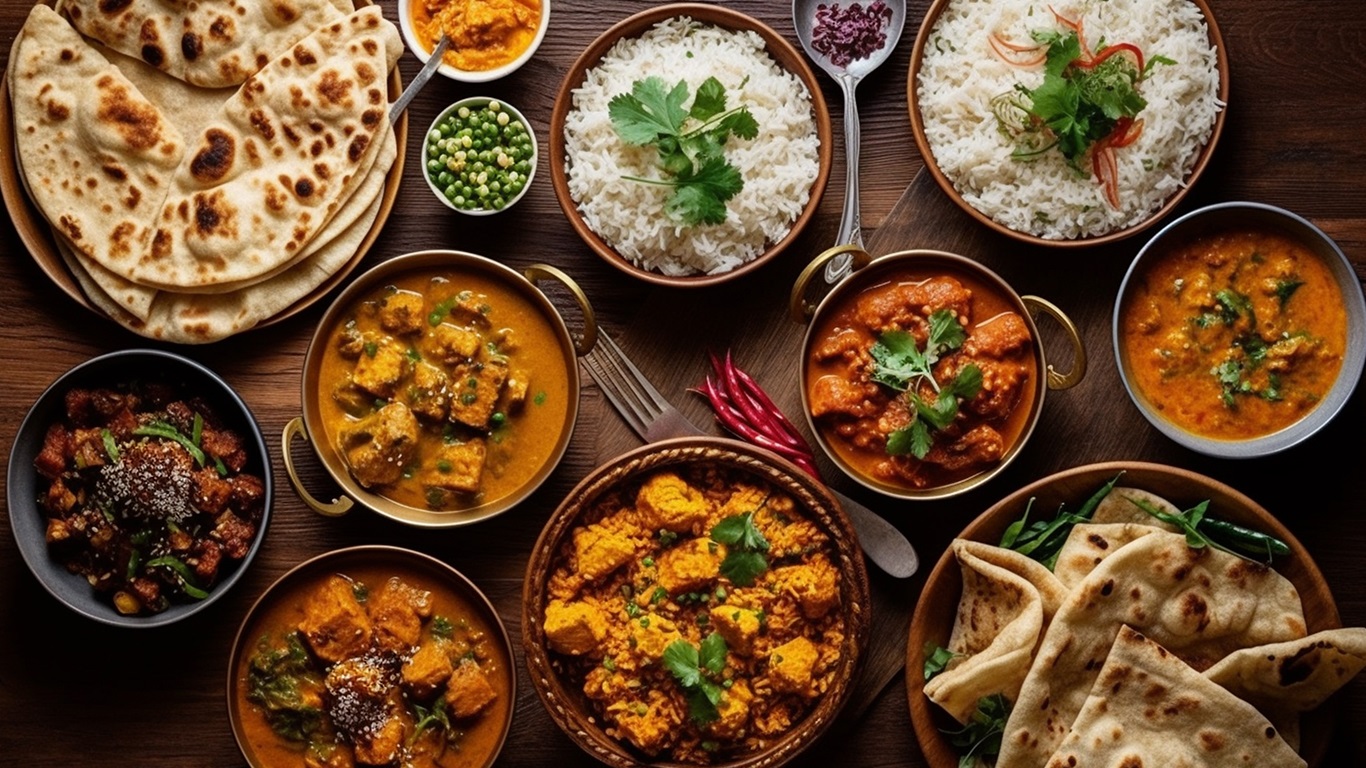As a Nigerian, you’ve likely seen TV shows like “The Big Bang Theory”, “Young Sheldon”, “Sherlock”, “Gifted”, and “The Good Doctor”. These shows highlight characters with sharp minds, exceptional memory, and quick thinking. You might have wished for a brain that sharp too. Fortunately, Nigerian foods for mental health can help you achieve this.
The brain uses about 20% of the body’s calories, so it needs the right fuel to function at its best. Proper nutrients are essential for keeping it healthy, and Nigerian foods for mental health are rich in the vitamins and minerals necessary for maintaining optimal brain function.
Keeping your mind sharp is important at every stage of life. Whether you’re a student striving for better focus, a professional looking to improve concentration, or an elderly person aiming to maintain cognitive abilities, the right foods can make a big difference.
Nigerian foods for mental health offer a wide variety of options to boost brain function, improve memory, and sustain mental energy.
Incorporating these Nigerian foods for mental health into your diet is simple. Many traditional Nigerian dishes already include brain-boosting ingredients, ensuring that your meals are both delicious and packed with nutrients that support mental clarity and cognitive health.
5 Nigerian Foods for Mental Health
Here are five of the best Nigerian foods that improve productivity and cognitive health:
1. Beans
Beans are an excellent source of plant-based protein, fibre, folate, and iron, all of which are vital for brain function. These nutrients play a key role in neurotransmitter production, helping regulate mood and cognitive abilities. They also maintain a healthy gut, which is closely linked to brain health through the gut-brain axis.
In Nigeria, beans are a staple food with many delicious preparations. You can enjoy them as “Moin Moin” (steamed bean pudding), “Ewa Agoyin” (mashed beans with spicy sauce), “Akara” (fried bean cakes), or simple porridge.
To further enhance their brain-boosting power, pair beans with fish, which is rich in omega-3 fatty acids—critical for brain function and development. The versatility of beans in Nigerian cuisine makes them a convenient and powerful brain food.
2. Plantains
Plantains are another fantastic brain-boosting food commonly found in Nigerian meals. Rich in complex carbohydrates, vitamins B6 and C, and magnesium, plantains provide a steady supply of glucose to the brain.
Glucose is the brain’s primary fuel, and a consistent flow of it ensures sustained focus and concentration throughout the day. Vitamin B6, found abundantly in plantains, supports the production of neurotransmitters like serotonin, which helps regulate mood.
Magnesium helps with nerve function, promoting mental clarity and reducing stress levels. You can enjoy plantains in various forms, such as fried plantains (dodo), boiled plantains served with fish stew, or plantain porridge (pottage). These dishes not only satisfy your taste buds but also provide a daily boost to your cognitive functions.
3. Egusi
Melon seeds, known as “Egusi” in Nigeria, are packed with brain-nourishing nutrients. They are rich in protein, healthy fats, and essential vitamins, particularly those that support brain health.
The healthy fats in Egusi are especially beneficial because they reduce brain inflammation, helping to preserve cognitive function. Proteins in Egusi aid in the production of neurotransmitters, which facilitate communication between brain cells.
Additionally, Egusi contains antioxidants, which help protect the brain from oxidative stress—a key contributor to cognitive decline. A hearty bowl of Egusi soup with vegetables and fish is a traditional favourite and also a powerful meal for boosting brain health.
4. Vegetables
Vegetables are at the core of Nigerian cuisine, with popular dishes like “Efo Riro” (stir-fried spinach), “Edikang Ikong” (vegetable soup), and “Black Soup” being vegetable-heavy.
These leafy greens are packed with vitamins A, C, and K, as well as antioxidants that protect the brain from oxidative damage. Antioxidants neutralize free radicals, reducing inflammation and preserving brain cells.
Vitamins C and K are particularly important for memory retention and cognitive clarity. Additionally, leafy vegetables contain folate, which aids in the production of DNA and other genetic materials, supporting cell growth and repair in the brain.
By incorporating more vegetable-rich soups into your diet, you can nourish your brain while enjoying traditional Nigerian flavours.
5. Yam
Yam is another versatile staple in the Nigerian diet and offers significant brain-boosting benefits. Yams are rich in complex carbohydrates, fibre, vitamins C and B6, and potassium, all of which support brain function.
The complex carbs in yams provide a slow, steady release of glucose, ensuring a consistent energy supply to the brain. This helps in maintaining focus and concentration over long periods.
Vitamin B6 aids neurotransmitter production, crucial for mood regulation and cognitive functions. Potassium helps maintain proper nerve function, supporting mental clarity.
Whether boiled, fried, roasted, or baked, yams are a delicious and nutritious option to fuel your brain for better productivity.
Incorporating these five Nigerian brain-boosting foods into your daily diet can have a lasting impact on your cognitive function and overall brain health. Each of these foods provides a unique combination of nutrients that enhance brain function, improve memory, and support mental clarity.
From the plant-based proteins and fibre in beans to the complex carbohydrates in yams and plantains, these foods offer powerful brain fuel. Regular consumption of Egusi and vegetables adds a rich source of vitamins and healthy fats, further boosting brain health.
Visit here for more reads.

 ENTERTAINMENT4 days ago
ENTERTAINMENT4 days ago
 FOOD5 days ago
FOOD5 days ago
 FASHION7 days ago
FASHION7 days ago
 FASHION6 days ago
FASHION6 days ago
 ARTS & CULTURE6 days ago
ARTS & CULTURE6 days ago
 BEAUTY6 days ago
BEAUTY6 days ago
 SPORTS7 days ago
SPORTS7 days ago
 BUSINESS4 days ago
BUSINESS4 days ago











































